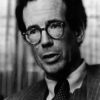Donald Kennedy

Donald Kennedy
Donald Kennedy is an American scientist, public administrator and academic. He served as Commissioner of the U.S. Food and Drug Administration, President of Stanford University, and Editor-in-Chief of Science Magazine. He resigned as president of Stanford University in 1992 in the wake of a scandal involving expenses charged to the federal government...
address advance answer cosmos fully knowledge largest phenomena process profound questions society
Today, science's most profound questions address some of the largest phenomena in the cosmos and some of the smallest. We may never fully answer some of these questions, but we'll advance our knowledge and society in the process of trying,
benefits candor held identity process results
The process benefits enormously from the kind of candor that results when referees know that their identity is held in confidence.
area bad evolution given good happened kansas lots year
In a way it was a bad year for evolution, given what happened in Kansas and Dover and lots of other places. But at the same time, it was a really good year for evolution research, really in every area of biology.
chain reverse store
It used to be there was a chain store here and there and 'independents' all around. It's the reverse now.
careful course giving guided learn paper time wrong
We are going to be giving that paper careful scrutiny, guided by what we can learn in the course of time about the 2005 one and what went wrong there.
ethically felt solid time
At the time of publication, we felt on ethically solid ground.
acts thankful
We are very, very thankful for the acts of kindness.
centers conditions control disease held kinds select
There's no possibility at all of that. It's held under the kinds of conditions the Centers for Disease Control specifies for select agents.
carefully concluded considered developing far flu gaining global health help information knowledge necessary prevent protect provides public publishing research risk science study vaccines
Science is publishing this study because it provides information necessary for developing drugs and vaccines that could help prevent another global flu pandemic. We carefully considered the implications of publishing this research and concluded that the knowledge we're gaining to potentially protect public health far outweighs the risk of working with this virus.
absolutely best bother cannot certainly common declare detect fraud frequency frequent happens high others peer people quite review scientific states system united
Scientific fraud is not new to us. It is not rare, but it is not common either. It happens at a frequency that's high enough to bother certainly people in the United States Congress, and probably others as well. But it is not frequent enough to declare that because the peer review system cannot reliably detect it, something has to be done about the peer review system. I think the peer review system is not quite fine, but absolutely the best thing we have.
aware concerns data information proceed raised readers since statement sufficient
Since we do not yet have sufficient information to proceed with the retraction, we are issuing this statement so that readers are aware that concerns have been raised about the validity of the data in this paper.
mean academic-freedom important
Academic freedom really means freedom of inquiry. To be able to probe according to one's own interest, knowledge and conscience is the most important freedom the scholar has, and part of that process is to state its results.
people tragedy twins
This is really a twin tragedy, both for the people who were misled over there, and for those of us who were misled over here.
vaccines medicine drug
So here's the situation confronting the drug firms: The drugs cost more to make, but they can't charge more for them. What do they do? Increasingly, the U.S. market is driving them toward drugs aimed at the diseases of richer, older Americans and away from antimicrobials, vaccines, and the like.